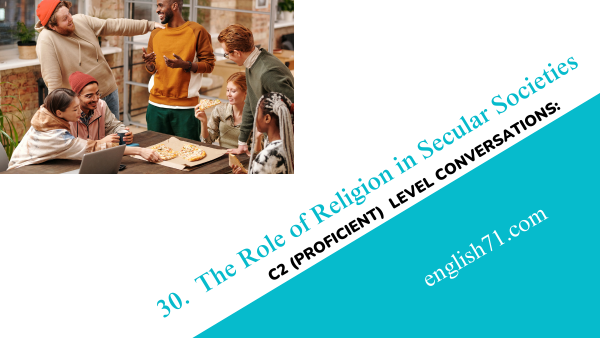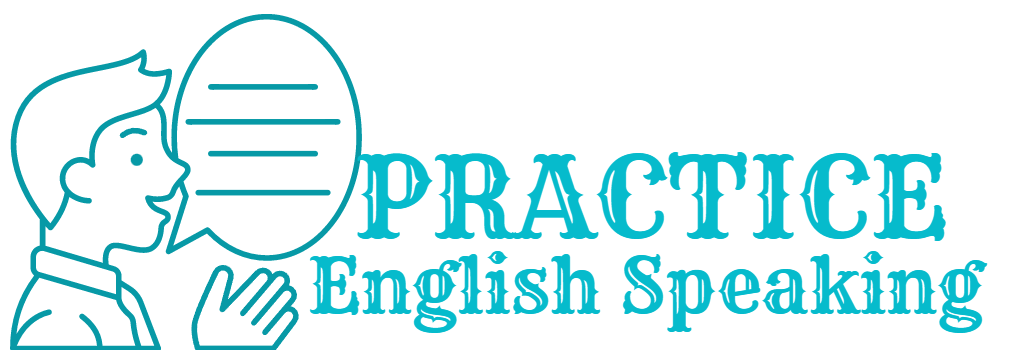C2 (Proficient) level Conversations: (30) The Role of Religion in Secular Societies

Aiswarya: Hi Saif, have you ever pondered the role of religion in secular societies?
Saif: Hi Aiswarya! Absolutely, it’s quite an intriguing topic. While secular societies advocate for the separation of religion and state, religion still holds significant influence in various aspects of life.
Aiswarya: Exactly. Despite the emphasis on secularism, religion often continues to shape cultural norms, values, and even political decisions.
Saif: Indeed. Religion often plays a vital role in shaping societal ethics and morality, providing a framework for individuals to navigate their lives.
Aiswarya: That’s true. It serves as a guiding force for many people, influencing their beliefs, behaviors, and interactions within society.
Saif: Moreover, religion often contributes to social cohesion, fostering a sense of community and belonging among its followers.
Aiswarya: Absolutely. Religious institutions often serve as centers of communal gathering, where people come together to celebrate festivals, participate in rituals, and support each other during times of need.
Saif: However, the influence of religion in secular societies can also raise questions about individual freedoms and human rights, especially when religious beliefs conflict with progressive values or minority rights.
Aiswarya: That’s a crucial point. Balancing religious freedom with the principles of equality and inclusivity is a constant challenge for secular societies.
Saif: Indeed. Secularism aims to create a neutral public space where people of all faiths and beliefs can coexist peacefully without any particular religion dictating state policies.
Aiswarya: Absolutely. It’s about fostering a pluralistic society where diverse religious perspectives are respected, and individuals have the freedom to practice their faith without infringing on the rights of others.
Saif: However, achieving this balance requires ongoing dialogue and negotiation between religious and secular institutions, as well as a commitment to upholding the principles of democracy and human rights.
Aiswarya: Absolutely. It’s about finding common ground while respecting the diversity of religious beliefs within society.
Saif: Precisely. By acknowledging and understanding the role of religion in secular societies, we can work towards building more inclusive and cohesive communities where everyone’s rights and freedoms are upheld.
Aiswarya: Well said, Saif. This conversation has certainly shed light on the complex dynamics between religion and secularism in modern societies.
Saif: Indeed, Aiswarya. It’s a topic that warrants further exploration and discussion as societies continue to evolve and grapple with issues of diversity and pluralism.



Summary:
In their extensive conversation, Aiswarya and Saif delve into the multifaceted role of religion in secular societies. They acknowledge religion’s enduring influence on cultural norms, values, and social cohesion despite the emphasis on secularism. The discussion highlights religion’s impact on individual morality, community building, and social ethics, as well as the challenges of balancing religious freedom with progressive values and minority rights. Ultimately, they emphasize the importance of fostering inclusive and pluralistic societies where diverse religious perspectives are respected, and individual freedoms are upheld within the framework of secularism.

